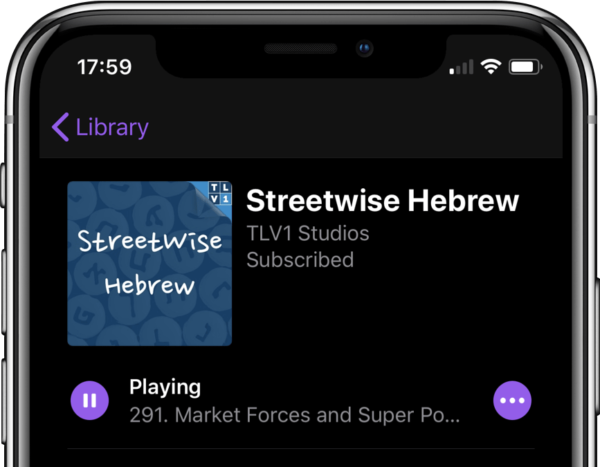We Israelis may not be the most polite people in the world, but from time to time even we say “I’m sorry” and “excuse me.” How do you say it in Hebrew? And what can you answer back? And how is it all connected to Korean? Listen and find out.
New Words and Expressions:
Slicha – Forgiveness – סליחה
Sole’ach, solachat – Forgiving – סולח, סולחת
Slach/Slechi li – Excuse me – סלח לי / סלחי לי
“Slicha al shepagati bach” – Sorry for hurting you – סליחה על שפגעתי בך
“Slicha she-lo hikshavti” – Sorry I didn’t listen – סליחה שלא הקשבתי
“Ma-ze slicha”- I’m so sorry – מה-זה סליחה
Mamash slicha – So sorry – ממש סליחה
Slicha she-ani hai – “Sorry for being alive” – סליחה שאני חי
Slicha she-ani noshem – “Sorry for breathing” – סליחה שאני נושם
Levakash slicha – To ask for forgiveness, to say you’re sorry – לבקש סליחה
“Halachti levakesh slicha” – I went to say I am sorry – הלכתי לבקש סליחה
“Ve-at mitstaeret” – And you (f.) are sorry – ואת מצטערת
Lehitsta’er – To be sorry – להצטער
Tsa’ar – Regret, sadness – צער
Ani mitztaer al… – I am sorry for… – אני מצטער על
“Ze beseder” – It’s ok – זה בסדר
Shtuyot – Nonsense – שטויות
Lo kara klum – Nothing happened – לא קרה כלום
Salachti – I have forgiven – סלחתי
“Tagidi salachti” – Just say “I’ve forgiven” – תגידי סלחתי
Playlist and Clips:
Ariel Zilber – Betty Bam (lyrics)
Want to see more Hebrew gems? Like Streetwise Hebrew on Facebook and Instagram.
Want Guy to talk about a pressing Hebrew issue? Find him at StreetwiseHebrew.com or follow him on Twitter.




